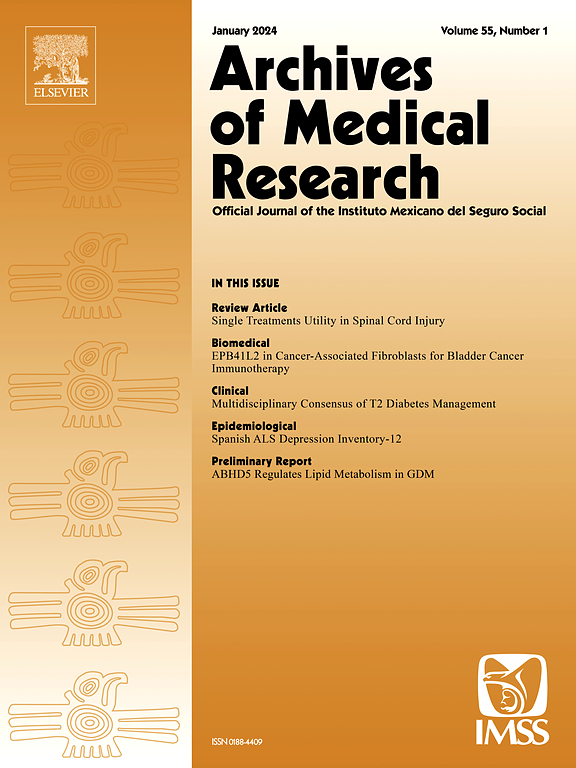Monocarboxylate Transporter 4 Inhibition Reduces Synovial Hyperproliferation and Metabolic Reprogramming Under Hypoxia in Rheumatoid Arthritis
IF 3.4
3区 医学
Q1 MEDICINE, RESEARCH & EXPERIMENTAL
引用次数: 0
Abstract
Objectives
In hypoxic conditions, the acidic environment characteristic of rheumatoid arthritis (RA) induces metabolic changes in fibroblast-like synoviocytes (FLS), markedly promoting the synovial proliferation. Monocarboxylate transporter 4 (MCT4) plays a crucial role in cellular pH regulation and synovial fibroblast activation by regulating lactate export. This study investigates the impact of MCT4 inhibition on RA and elucidates its underlying mechanisms.
Method
RA-FLS cells were treated with siMCT4 and VB124 (a selective MCT4 inhibitor), significantly affecting glucose and glutamine uptake and altering lactate efflux. Metabolite analysis using liquid chromatography-mass spectrometry (LC-MS) revealed the mechanisms of carbon metabolism reprogramming. ChIP-qPCR analysis demonstrated changes in hypoxia-inducible factor-1α (HIF1-α) binding to the MCT4 promoter. The therapeutic effects of siMCT4 and VB124 were validated in a collagen-induced arthritis (CIA) model, and their efficacy was assessed through arthritis scores and histological examination.
Results
In patients with RA, MCT4 levels are significantly elevated. Inhibition of MCT4 effectively reduces synovial hyperproliferation and impacts metabolic reprogramming. Specifically, blocking MCT4 in RA-FLS reduces glucose consumption and lactate production while remodeling the metabolic landscape by increasing fumarate, citrate, and malate levels, and decreasing glucose-6-phosphate and aspartate levels. This metabolic shift is accompanied by improvements in mitochondrial structure and function, reduced mitochondrial swelling, and decreased oxidative stress, underscoring the relationship between MCT4 inhibition and cellular energetics. Furthermore, our investigations reveal that HIF1-α directly regulates MCT4 activation, providing a molecular mechanism by which hypoxia promotes MCT4-mediated metabolic reprogramming.
Conclusion
These findings highlight MCT4 as a central regulator of RA proliferation and a promising therapeutic target.
单羧酸转运蛋白4抑制可减少类风湿关节炎缺氧下滑膜增生和代谢重编程
目的:在缺氧条件下,类风湿关节炎(RA)的酸性环境特征诱导成纤维细胞样滑膜细胞(FLS)代谢变化,显著促进滑膜增殖。单羧酸转运蛋白4 (MCT4)通过调节乳酸输出在细胞pH调节和滑膜成纤维细胞活化中起关键作用。本研究探讨MCT4抑制对RA的影响,并阐明其潜在机制。方法用siMCT4和VB124(一种选择性MCT4抑制剂)处理ra - fls细胞,显著影响葡萄糖和谷氨酰胺摄取并改变乳酸外排。液相色谱-质谱联用分析揭示了碳代谢重编程的机制。ChIP-qPCR分析显示缺氧诱导因子-1α (HIF1-α)与MCT4启动子结合的变化。在胶原诱导关节炎(CIA)模型中验证siMCT4和VB124的治疗效果,并通过关节炎评分和组织学检查评估其疗效。结果RA患者MCT4水平明显升高。抑制MCT4有效地减少滑膜过度增生和影响代谢重编程。具体而言,在RA-FLS中阻断MCT4可减少葡萄糖消耗和乳酸生成,同时通过增加富马酸盐、柠檬酸盐和苹果酸盐水平以及降低葡萄糖-6-磷酸和天冬氨酸水平重塑代谢景观。这种代谢转变伴随着线粒体结构和功能的改善、线粒体肿胀的减少和氧化应激的降低,强调了MCT4抑制与细胞能量学之间的关系。此外,我们的研究表明,HIF1-α直接调节MCT4的激活,提供了缺氧促进MCT4介导的代谢重编程的分子机制。结论这些发现表明MCT4是RA增殖的中心调节因子,是一个有希望的治疗靶点。
本文章由计算机程序翻译,如有差异,请以英文原文为准。
求助全文
约1分钟内获得全文
求助全文
来源期刊

Archives of Medical Research
医学-医学:研究与实验
CiteScore
12.50
自引率
0.00%
发文量
84
审稿时长
28 days
期刊介绍:
Archives of Medical Research serves as a platform for publishing original peer-reviewed medical research, aiming to bridge gaps created by medical specialization. The journal covers three main categories - biomedical, clinical, and epidemiological contributions, along with review articles and preliminary communications. With an international scope, it presents the study of diseases from diverse perspectives, offering the medical community original investigations ranging from molecular biology to clinical epidemiology in a single publication.
 求助内容:
求助内容: 应助结果提醒方式:
应助结果提醒方式:


